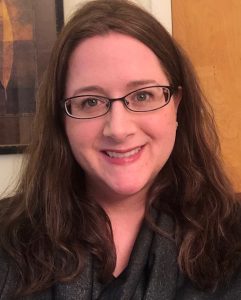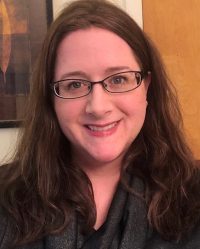The Tribe: Families Living Jewish Values Through Community
This week’s blog post is by Arinne Braverman, the Founding Director of The Tribe, President of From Strength to Strength, and Executive Director of Returning the Sparks.
Through The Tribe, parents (both Jewish and non-Jewish) and Jewish children are educated about 
When my children approached the age to begin a formal Jewish education, I sought to avoid replicating my own Sunday school experience, which had focused solely on Judaism as a religion. It was essential to me that my children emerge with a Jewish education that provided them with a Jewish lens, based upon Jewish values and wisdom gleaned from the study of both traditional Torah and our lives as living Torah, as well as from connection to the Jewish calendar. In The Tribe’s design, I aimed to anchor our children, providing a meaningful, experiential Jewish foundation to elevate their day-to-day lives and to revisit throughout the most celebratory and challenging times in their lives. While in the future our children might choose to cease observing Jewish religious practices, they would always remain members of Am Yisrael. I wanted them to learn what it meant to be a “member of The Tribe” and to have their connection to their local Jewish community lead to their active engagement with Jewish Peoplehood.
Misha Galperin and Dr. Erica Brown explain that Jewish Peoplehood is about belonging to an “extended family with a purpose.” Why emphasize the experience of “extended family” and community today rather than focusing solely on “purpose?” Twenty years ago, Robert Putnam chronicled America’s declining social capital and our increasing disconnection from family, friends, neighbors, and democratic structures in his book Bowling Alone. Over the past several decades, fewer Americans have been raised to personally experience community, collective identity, and mutual responsibility—the stuff of Jewish Peoplehood. The Tribe is designed to meet the needs of families who are living during the Digital Age and facing an epidemic of loneliness. Most of the families that come to us are part of a generation that is accustomed to thinking globally and acting universally. The Tribe provides them with a personal experience of what it means to think and act Jewishly, and to do so locally-with “tribe-size” groups of families living in close geographic proximity to each other.
In its first year, more than three-quarters of Tribe members were not synagogue members. The Tribe provided an opportunity for these families to become an active part of a Jewish micro-community, as Jewish families have done, both formally and informally for generations. The results were better than we could have hoped for: participating families reported a 260% increase in feeling connected to the Jewish community and a 69% increase in the frequency of intentionally engaging in “living Jewish values and doing ‘good deeds’” on a monthly or more frequent basis.
In a 2010 Emory University study, it was determined that children who know more about their family history are more resilient-better able to deal with stress and with better self-esteem. As a parent, I wanted to ensure that my children knew our immediate family’s history as well as knowing our “extended family’s” history—the history of the Jewish People. While any parent might want their children to understand their people’s history for the personal psychological benefits provided, The Center for Jewish Peoplehood helps answer why it matters, lishma (for its own sake), for other members of the Jewish community, and for the world: ”As Jews, we receive keys to participate in a meaningful communal life, an educational ethos and a rich culture and heritage. Each Jew is part of a larger whole with a shared past, present and future and a collective context in which to shape a new chapter in Jewish life. The resources provided by Jewish civilization are a powerful means to make the world a better place in partnership with other Jews and on behalf of the Jewish People, enabling this generation to leave a mark on the world.”
Jewish Peoplehood as a proposed “5th proposition,” and “The Tribe” in particular, are inclusive of non-Jews who “opt in” and join their fate with the Jewish People, whether or not they convert. Rather than being a radical modern concept, if we look to the Torah, we find myriad precedents for non-Jews’ joining “The Tribe.” To cite just one example, Joseph’s Egyptian wife, Asenath, whether or not she converted, is part of our collective Jewish story. Jews around the world continue to name Asenath’s family in our prayers each Shabbat, asking that our boys’ merit to be like her sons, Ephraim and Menassah.
Referring back to the Center for Jewish Peoplehood quotation above, there are those in our community for whom the “key” of Jewish liturgy and religious ritual practice does not open the door to a meaningful Jewish connection. Rabbi Sid has helped to identify additional “keys” of chochma, tzedek, kehilla and kedusha that are helping to reach Jewish families who might be disconnected from the organized Jewish life. I am eager to see what “marks will be left” when The Tribe’s members, families, and communities discover these and other “keys” that open the door to connection with Jewish Peoplehood.
Arinne Braverman is the Founding Director of The Tribe and serves as the President of From Strength to Strength and Executive Director of Returning the Sparks. Arinne is an alumna of the Jewish Organizing Initiative, member of Ma’yan Tikvah, and mom to Noah (10) and Coby (8).


